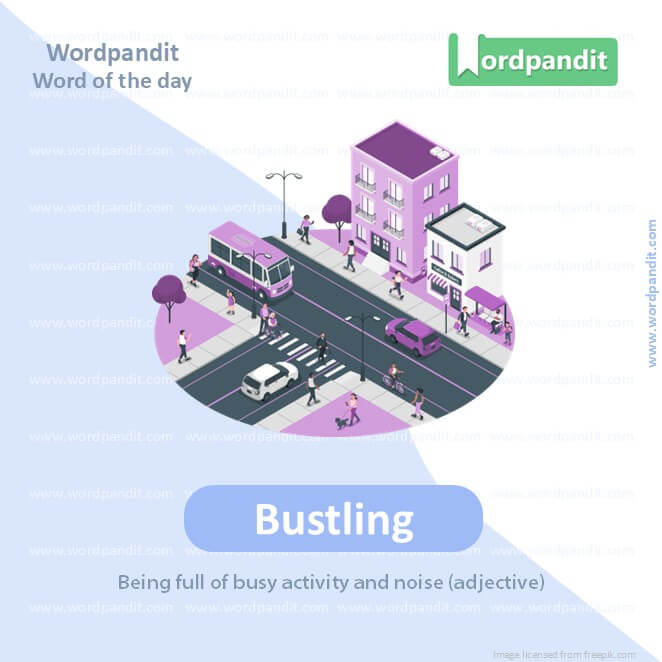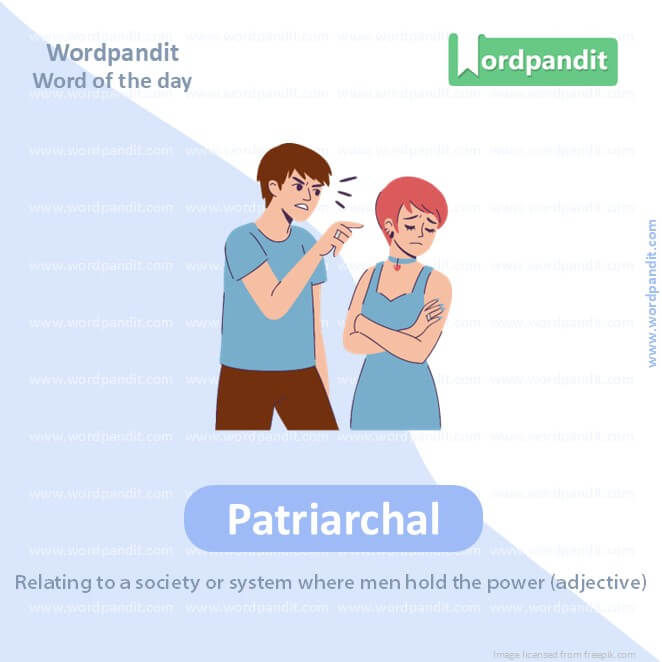Daily Vocabulary Words: Enhance Your Lexicon with Leading Newspapers & Publications
Welcome to the Daily Vocabulary section at Wordpandit!
Our mission is straightforward: to bring you essential vocabulary words featured in top newspapers and publications worldwide. By focusing on words you’ll encounter in renowned sources, we aim to help you enhance your vocabulary effectively and practically.
Our selection includes words from:
– The New York Times
– The Washington Post
– Scientific American
– BBC
– The Guardian
– Psychology Today
– Wall Street Journal
– The Economist
– The Hindu
– The Times of India
– The Economic Times
– Hindustan Times
– Live Mint
– The Indian Express
– And many more.
We are committed to your vocabulary development. Simply visit this section regularly and explore the daily posts. This is your go-to repository for commonly used words, providing significant practical benefits by familiarizing you with vocabulary from the leading publications listed above.
Make it a habit to visit our website daily and expand your lexicon with words from top newspapers and publications.

Word 1: Exodus
Context: Beirut in the biggest exodus since the 2006 Israel-Hezbollah war.
Source: The Hindu
Explanatory Paragraph:
Imagine if a big group of birds decided to fly away from a tree all at once because they want to go somewhere else. That’s like an “exodus.” It’s when a large group of people or animals leave one place together, usually because they need to find a better place to live or stay.
Meaning: A mass departure of people, especially when they leave a place together (noun).
Pronunciation: EK-suh-duhs
Synonyms: departure, flight, migration, evacuation, retreat, withdrawal
Usage Examples:
1. There was a large exodus from the city after the storm damaged many homes.
2. The exodus of people from the stadium caused traffic jams.
3. The sudden exodus of workers left the factory nearly empty.
4. During the holidays, there’s often an exodus of people heading to the countryside.

Word 2: Bustling
Context: The embassy said on Tuesday (Sept. 24, 2024) that employees require an armoured vehicle and prior approval to travel to a large region of the north that includes the bustling coastal city of Haifa.
Source: The Hindu
Explanatory Paragraph:
Think of a place where everyone is moving around, doing things, and there’s a lot of noise. It’s like when kids are playing at the park, or people are shopping in a big store. That’s called “bustling,” and it means a place is very busy and full of energy.
Meaning: Being full of busy activity and noise (adjective).
Pronunciation: BUHS-ling
Synonyms: busy, lively, crowded, energetic, active, vibrant
Usage Examples:
1. The bustling market was full of people buying fruits and vegetables.
2. The city streets are always bustling with activity during rush hour.
3. We visited a bustling café where people were chatting and drinking coffee.
4. The bustling airport had travelers from all over the world.
Word 3: Brink
Context: from southern Lebanon and putting the two sides on the brink of all-out war.
Source: The Hindu
Explanatory Paragraph:
Imagine you’re standing right at the edge of a swimming pool, about to jump in. That’s called the “brink.” It means being at the very edge of something, like just before something big happens.
Meaning: The very edge or point just before something happens (noun).
Pronunciation: BRINGK
Synonyms: edge, verge, threshold, point, cusp, border
Usage Examples:
1. She was on the brink of winning the game when the power went out.
2. The company was on the brink of closing due to financial problems.
3. Standing on the brink of the cliff, they admired the view.
4. Scientists warned that we are on the brink of a major environmental disaster.
Word 4: Staggering
Context: “It’s a staggering one-day toll for a country still reeling from a deadly attack…”
Source: The Hindu
Explanatory Paragraph:
Imagine if someone tried to carry something super heavy, and they almost fall because it’s so hard to carry. Or think of something so amazing that it makes you stop and say, “Wow!” That’s what “staggering” means. It can describe something surprising, amazing, or even hard to believe.
Meaning: Causing great shock or amazement (adjective).
Pronunciation: STAG-er-ing
Synonyms: astonishing, overwhelming, shocking, mind-blowing, stunning, incredible
Usage Examples:
1. The staggering number of stars in the sky left him speechless.
2. The cost of building the bridge was staggering.
3. She achieved a staggering amount of success in such a short time.
4. The staggering news of the discovery spread quickly around the world.
Word 5: Volleys
Context: The rockets came in five volleys throughout the morning, the largest of them containing 50 rockets.
Source: The Hindu
Explanatory Paragraph:
Think of kids taking turns throwing a ball back and forth. Or maybe people taking turns saying something quickly one after another. That’s called “volleys,” when things happen quickly back and forth, like in a game or in talking.
Meaning: A series of things, such as shots or comments, happening quickly one after another (noun).
Pronunciation: VOL-eez
Synonyms: barrage, burst, outpouring, salvo, flurry, stream
Usage Examples:
1. The soldiers fired volleys of shots into the air to signal the start of the event.
2. She responded to the questions with volleys of sharp comments.
3. A volley of emails filled her inbox after the announcement.
4. The two teams exchanged volleys of shots in a heated soccer match.
Word 6: Marginalisation
Context: “The persistent marginalisation of women in the political sphere demands critical scrutiny.”
Source: The Hindu
Explanatory Paragraph:
Imagine if there’s a big group of kids playing together, but they don’t let one kid join the game. That kid might feel left out or pushed aside. “Marginalisation” means making someone feel left out or less important.
Meaning: The process of pushing someone or a group to the side, making them feel less important (noun).
Pronunciation: mar-jin-uh-luh-ZAY-shuhn
Synonyms: exclusion, sidelining, neglect, isolation, alienation, discrimination
Usage Examples:
1. Marginalisation of certain groups in society can lead to unfair treatment.
2. The report discussed the marginalisation of indigenous people in the country.
3. Efforts are being made to reduce the marginalisation of women in politics.
4. The marginalisation of the poor has become a growing concern.

Word 7: Patriarchal
Context: The political landscape is deeply rooted in J&K’s patriarchal social structure.
Source: The Hindu
Explanatory Paragraph:
Imagine a family where the dad or grandfather makes all the big decisions. When a place or group is run mostly by men, that’s called “patriarchal.” It means that men have more control than women.
Meaning: Relating to a society or system where men hold the power (adjective).
Pronunciation: PAY-tree-ar-kul
Synonyms: male-dominated, paternalistic, fatherly, traditional, masculine-led
Usage Examples:
1. The village had a strong patriarchal structure, with men making most decisions.
2. In many cultures, societies were historically patriarchal.
3. The laws reflected the patriarchal values of the time.
4. Feminists often challenge patriarchal systems to promote gender equality.

WORD-8: Broiling
CONTEXT: The Ukrainian counteroffensive has stalled. For the first time since the outbreak of the war, the feeling that Russia may actually be winning is taking root. The long-applauded western resolve in support of Ukraine is waning. The western Balkans are broiling. And next year’s presidential election in the US does not bode well for Europe. In this context, the timing of the summit of EU leaders on 14-15 December could make it the most consequential in the bloc’s recent history.
SOURCE: The Guardian
Explanatory Paragraph: Broiling is cooking food with high heat, like when you cook something under the grill in the oven, and it gets a crispy top.
Meaning: To cook by direct exposure to high heat (verb).
Pronunciation: broy-ling
Synonyms: Grilling, Roasting, Toasting, Searing, Barbecuing
Usage Examples:
1. She was broiling chicken for dinner.
2. The recipe called for broiling the vegetables.
3. They enjoyed broiling marshmallows over the fire.
4. Broiling gives the meat a nice crust.

Word 9: Vitiate
Context: The decision taken in haste does not vitiate the approval.
Source: The Hindu
Explanatory Paragraph:
Imagine if you had a nice, tasty ice cream, but then someone spilled something bad on it, making it yucky. That’s what “vitiate” means—it’s when something good gets ruined or spoiled.
Meaning: To spoil or weaken something, making it less effective (verb).
Pronunciation: VISH-ee-ate
Synonyms: spoil, impair, weaken, damage, ruin, corrupt
Usage Examples:
1. The noise from the street vitiated our peaceful evening.
2. A misunderstanding vitiated the deal between the two companies.
3. Pollution can vitiate the natural beauty of the countryside.
4. The long delay vitiated the excitement of the announcement.
Word 10: Precipitative
Context: Not to take any precipitative action.
Source: The Hindu
Explanatory Paragraph:
Imagine you are running so fast that you start a chain of events, like knocking over dominoes. That’s what “precipitative” means—it’s when something causes other things to happen quickly or suddenly.
Meaning: Causing something to happen suddenly or more quickly (adjective).
Pronunciation: pre-SIP-i-tuh-tiv
Synonyms: hasty, impulsive, sudden, hurried, rapid, rash
Usage Examples:
1. His precipitative actions led to a series of unforeseen problems.
2. The precipitative fall in stock prices caused panic among investors.
3. The precipitative announcement caught everyone by surprise.
4. Her precipitative decision to move shocked her friends.










